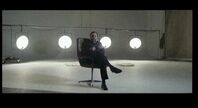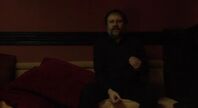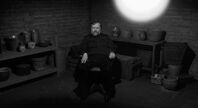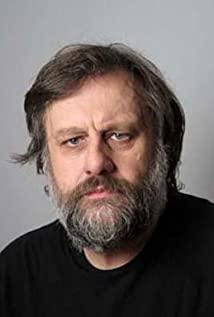After watching the movie carefully, I found that I had a deep misunderstanding of psychoanalysis before. Psychoanalysis is quite the right way to analyze movies. Although my level is limited, I still can't understand some places.
As far as I understand it, Zizek discusses cinema from the following perspectives:
First, film and desire. Zizek's analysis of desire starts from a psychoanalytic point of view, the most important being the interrelationship between the id, ego and superego.
The id is the pursuit of animal satisfaction, such as sex, appetite, etc.; the superego is the restraint of the id. Different schools have different views on the formation of the superego. Some people think that the superego is a Eternal, it comes from something that does not belong to this world, such as Plato's idea, it is not constrained by social conditions, it acts on the id unconditionally, forming human nature, others think that the superego is constructed and is human The constraints on the id formed in the long-term social life have different superego in different social stages. This explanation seems to be more down-to-earth. According to this explanation, human morality or the composition of human nature is not static. Slave society has the morality of slave society, and capitalist society has the morality of capitalist society. The ego, on the other hand, is what people show in their daily life. It is a state of balance that is influenced by the id and superego.
These three concepts are mainly used by Zizek in his elaboration of the relationship between film and desire.
The selected cases in the film are mainly the following: Vertigo, the Blue Velvet, The Conversation, The Psycho, Duck Soup, Alien, The Exorcist, The Birds, Das Testament Des Dr. Mabuse, the Dictator.
Let’s start with how desire appears in the film as a metaphor. For example, in the Psycho, each floor of the hero's three-story residence corresponds to the hero's superego, id, and ego. Dark and evil things like the id are metaphorically used in the movie as a cellar. This is quite scary, the actor's personality is completely distorted in the cellar. And like in Duck Soup, the three "Is" appear as three brothers with very different personalities. For example, in The Birds, a flock of birds represents the incest-seeking id. I won't give an example later. After watching it, I found that it is a good way to analyze the metaphors in the movie from the perspective of psychoanalysis, but the premise is that the movie is conceived from the perspective of psychoanalysis (after all, many movies now have no background in psychoanalysis. Well, if you force a one-to-one correspondence, it can only be regarded as a coercive offense. Moreover, psychoanalysis has also been clinically proven to be ineffective, and it can only be used in the literary and artistic circles to exert its residual heat.)
Let’s talk about the relationship between desire and reality. Zizek proposed an interesting dialectical relationship: what we encounter in real life is basically the human ego. Since the ego is composed of the superego and the id, when the superego or the id breaks through the equilibrium state, in a When a person becomes dominant, the person often presents a sense of magic, such as when we see what a mentally ill person does or thinks, or when we see some pure and frightening desire in the news resulting in criminal cases. Zizek therefore believes that this deep desire is a crack in reality. When desire begins to reveal, reality gradually becomes magical, and when only desire is left (perhaps this is not the case, because unless one becomes zombies or something like that), the reality disappears completely.
From this point of view, Zizek believes that there is a very important difference between film and reality. It is a display of desire and a play with desire. It tests the extent to which desire can be revealed, which is difficult to achieve in reality. .
Is this really the case? I have some doubts. After all, the three levels of human nature cannot stand the test of theory or experiment. Why not four levels or more, maybe there are different levels corresponding to different constellations, plus some phrenology What, the theory of psychoanalysis is more colorful. However, it is undeniable that this theory of human nature is rooted in traditional philosophy, which always presupposes the distinction between human reason and sensibility, the distinction between the world and the self, etc. These concepts are what Zizek likes to say "consciousness" "Form" deeply affects our daily concepts, literary and artistic creation, etc., perhaps this is the reason why psychoanalysis still has vigorous vitality today. But it's a little scary to think about psychoanalysis as a dogma.
The remaining questions will be discussed in the next film review.
View more about The Pervert's Guide to Cinema reviews







